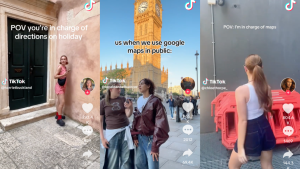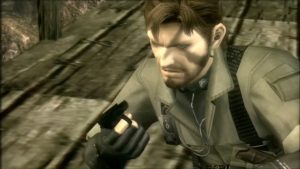
“Even God Cannot Hear Us Here”: What I Witnessed Inside an ICE Women’s Prison
On a Tuesday in March, I had spent most of my day working on my dissertation proposal and started to feel exhausted and hungry. It was the holy month of Ramadan, and I was fasting. Once finished, I quickly got ready to attend an iftar dinner, throwing on my hoodie, sweatpants, and a jersey headscarf—definitely not a day for being fancy. I was looking forward to taking a short walk and catching up with friends at the interfaith center, when I was suddenly surrounded and grabbed by a swarm of masked individuals, who handcuffed me and shoved me into an unmarked car.
Suddenly, I was thrust into a nightmare. Thousands of questions crept up in the hours that passed. It felt like an eternity as my shackled body was jostled from one location to another. Who were these people? Had I been a good enough person if today was my final day? I was relieved to have finished filing my taxes, but I couldn’t shake the thought of a book I needed to return to the library. I regretted not calling my grandparents and friends that day. My mom had heard my scream on the phone when they were taking me. She didn’t know where I was, and I could only imagine how many times she tried to reach me from oceans away, or who my father had attempted to contact. As my body shook with fear, I found myself drowning in thoughts. I began my final prayers, communicating with God that I had tried my best every day.
I was shuttled from Somerville to another city in Massachusetts, then to New Hampshire and Vermont, followed by Georgia and Louisiana. I experienced countless changes in agents, cars, planes, and handcuffs. In Vermont, I was required to take a DNA test for the first time. I hadn’t yet been permitted to contact my parents, friends, or lawyer. I asked numerous questions, but I received few answers; those I did get were inconsistent with each other.
Throughout, I was disoriented, hungry, and nauseous. In Georgia, after suffering a severe asthma attack without my primary inhaler and having a hard cry, I was feeling completely hopeless. In Louisiana, I found myself in a cramped, cagelike bus, waiting for hours. I watched as countless people arrived from a nearby plane, all shackled—hands, feet, and waists. Some were taken inside a building, while others were loaded onto a bus, where I was left behind. I asked for water but was given none. I sat with others in uncomfortable seats, all of us feeling the weight of our situations, and me intensely feeling the strain on my body, which was about to collapse.
I never could have imagined such an ordeal when I came to the United States in 2018 to pursue my graduate studies, learn and grow as a scholar, and contribute to the child development field. I earned my master’s degree in developmental psychology from Columbia University on a Fulbright scholarship. And now I am in the final stage of my doctoral studies at Tufts University, focusing on how young people use social media to benefit others, like by helping their friends, showing kindness to peers, and saying nice things to others.
In all of my studies, research, and professional work, I am driven by positive child and adolescent development, specifically how positive media use among children and adolescents can nurture more kindness and compassion in the world. I am also a dedicated teacher who strives to listen to, support, and care for young people, including undergraduate students at Tufts. And that’s why, together with other Tufts graduate students, I coauthored an op-ed in the The Tufts Daily seeking to affirm the equal dignity and humanity of all people. The opinion article urged the university to listen to its undergraduate student body in the democratic resolutions passed by the Tufts Community Union Senate (three out of four), including acknowledging the Palestinian genocide. Writing is one of the most peaceful ways of communication that I am aware of. Writing is a form of listening, a process of thinking, and the foundation upon which academic work is built. Writing is the heart of freedom of expression. Unbelievably, this single opinion piece, published in our student newspaper, would lead to my arrest and detention.
It wasn’t until late afternoon on March 26 that we arrived at a “detention center,” roughly 24 hours since I had been grabbed off the street. While waiting to be processed alongside dozens of other women in a stark white cell, I felt utterly exhausted, lying on the hard floor from time to time. As someone who learned English later in life, the lines between prison and detention centers blurred in my mind. I had a lot of questions: Who are the people staying here? How many are there? What are the living conditions like? What kinds of offenses have brought them here? How long have they been here?
The cramped room was filled with women, some lying on the cold floor, others looking scared or simply sad, all in desperate need of food and water. The bathrooms were just curtained stalls. The room itself was frustratingly bright, with hard, uncomfortable benches that added to the tension of the situation. Later in the night, we were finally given some dinner. My request for halal or vegetarian food was rejected.
Still, despite these awful circumstances, I clung to my belief in humanity. I took a moment to collect my thoughts. I then began engaging in conversations with the women around me. Over the 14 hours I spent in processing, I connected with many of them. Through a sometimes-challenging language barrier, we talked—about how we’d gotten there, where we’d been, and what was waiting for us on the inside. I discovered that another woman there also had asthma, as she carried her inhaler. I learned that several women were separated from their children.
I soon learned the color coding used in the detention center. Orange indicated “low crime,” meaning those individuals were asylum seekers, their “crime” being the act of legally seeking asylum or crossing the border without authorization. Women kept asking me, “Did you cross the border?” I answered: “I hadn’t.’’ “I had a ticket.’’ “I had F-1 visa one day before.’’ “I am a doctoral student.’’ The red uniforms denoted more serious offenses. I came to understand that this facility serves as an immigration detention center where asylum seekers, refugees, and immigrants—people escaping conflict, war, oppression, and violence—are taken and find themselves stuck for months or years. I was given orange. I wondered which border I had crossed without my knowledge.
COOKIES, CONVERSATION, AND CONFUSIONAround 6 a.m. on Thursday, March 27, having gone two nights without sleep and little food, I was finally processed in the for-profit ICE prison. My request for a space for my morning prayer was rejected by an intake officer. Instead, I was directed to the medical center for my first evaluation, which primarily consisted of me listing my health issues to the nurse and trying to remember the names of the medications I was taking. I spent hours waiting there under extremely loud TV sounds. Later, when I was directed to where I was to stay in the afternoon, I was bewildered to find 23 other women crowded into a small cell. They greeted me with warmth and smiles, which only added to my confusion. The questions I initially had about who they were and why they were there continued to fade. I opened the plastic bag of “essentials” that the officers had given us, which contained two to three changes of clothes, flip-flops, a small bottle of shampoo, a comb, one thin blanket and sheet, toothpaste, a cheap toothbrush, and a handbook.
Always the student, I wanted to dive into the handbook, but it was written in Spanish. I asked a few of the other women if they had an English version; they did, and they were eager to help me understand everything. I read the handbook and instructions multiple times, but some parts were confusing.They walked me through the setup of the phone, which felt outdated and challenging to operate. They showed me how to use the old tablets in the room, explained how to set up my account, and guided me through the commissary process—the weekly food ordering system that often failed to deliver—along with a few other limited features. After that, utterly miserable and drained, I turned my attention to the blue metal bunk bed.
My cellmates noticed how tired I looked and came over to help: “You can store your clothes under the bed,” they said, “and you can push it to create a small shelf for some of your belongings.” We managed to do that together. I received a small black box for my clothes that contained pasta, oil, and some bugs—not the best surprise. We started cleaning up together. They taught me how to do laundry, making sure the bag is tight so the clothes don’t get lost, which would mean a lot of difficulty requesting more. One woman offered me cookies, while the other offered tea, and they both sat down to chat with me. “This place is the worst,” they said, telling me about the times when they did not have access to female hygiene products or toilet paper, times when their questions were not answered, how they were constantly counted and lined up, how some officers raised their voices or, somehow even worse, did not even respond. How in the kitchen, they were forced to sit at another table without reason. They shared how cold they were in the wintertime, with no extra blankets, jackets, or proper shoes being provided. They shared stories of witnessing violence.
The next chapter of my experience in prison began in that moment. Over the next six and a half weeks, I found myself immersed daily in the love, beauty, resilience, and compassion of these women. We each found ourselves trapped in our own individual nightmares, but we found comfort and relief in one another, and we shared the burden and pain by listening to each other.
In one small room, a world of possibilities unfolded: It transformed into a therapy space, a beauty salon, a hairstyling center, a Pilates studio, a medical center, a massage room, an interfaith temple, and an art studio all at once—without any tools or resources. We tackled long-standing disputes that have plagued our nations for years, between Armenia and Turkey, Russia and Ukraine, Uzbekistan and Kyrgyzstan. We bonded over our shared experiences, which spanned geographies from Colombia to Iran and Afghanistan to Honduras. These warm interactions extended to all other women I interacted with outside of my room in the ICE prison.
Each conversation turned into a group therapy session where we would gather to open up about the grief we felt regarding the harsh realities and dehumanization occurring in a godforsaken for-profit ICE prison in America, a place we had all come to pursue our dreams. During limited times outside in the yard, I walked with many women, listening to their stories. Among us was a singer with almost a million followers, a talented violinist, a Pilates instructor, a visual arts teacher, a devoted mom, a loving grandmother, and a woman with a passion for arranging flowers. Someone’s best friend. Someone’s fiancée. Someone’s wife. Someone’s daughter. An aunt. A human rights activist. A human, like all of us, with a heart. And me, a very confused international doctoral student.
People rallying in solidarity with Rümeysa Öztürk and Mohsen Mahdawi outside New York Federal Court on May 6, 2025, as the court hears the U.S. government’s request to appeal the decisions in their cases.From Getty Images.
A SERIES OF UNFORTUNATE EVENTSOn my very first night, when I was anxious about being without any books, one new friend shared a copy of Eleanor H. Porter’s Pollyanna with me—a story about an orphaned girl in the fictional town of Beldingsville, Vermont, who finds gratitude in every situation, spreading joy to those around her. Later, another friend taught me the very bureaucratic way of getting approval for books sent from outside: “First, you ask permission from the major, then your friend needs to order from a retail company, then the major needs to approve again. It takes time. Choose softcover, longer books. Coloring books are not permitted. You cannot keep two books at the same time. After you finish, you must donate your book to the detention center and start the process again to be able to receive another book.” Their recommendations continued: “You can borrow only one book from the library.’’
After many requests, I finally accessed what turned out to be the saddest and smallest library I have ever seen. I was surprised to find that the books were not categorized by author or Dewey number but size. I tried to find a book before my allotted time ended and picked a cooking book; the second time I got a novel. I began flipping through the pages in search of solace, as books have always been my safe haven. To my surprise, I discovered handwritten notes scattered throughout the book, dated and written by various detainees over time. These messages were filled with reminders of hope, strength, and the assurance that this, too, shall pass. Tears welled up in my eyes as I read their heartfelt expressions. It’s incredible how human beings can find ways to uplift each other, transcending time, space, and borders if they want to and if they choose to. I continued to turn the pages, holding on to the hope of finding brighter moments in this terrifying situation—all thanks to the kindness of people I had never met.
Although I was comforted by the women around me, every day resembled a new chapter from Lemony Snicket’s A Series of Unfortunate Events. We stumbled upon frogs, crawfish, snakes, and bugs in the yard and were ridiculed by some officers for being afraid. Some days, the officers played “Happy” loudly when we were walking, only increasing our desperation. The temperatures in Louisiana were scorching. After I arrived, we were not allowed to have any time outside for almost one week. Our yard time was limited. We constantly faced a choice between the fresh air and shielding ourselves from the sun, as there were only a few shaded spots available. In stark contrast, our room felt freezing. To find some relief, we heated plastic water bottles and used them as mini heaters.
Breathing inside the detention center was hard, both symbolically and physically. I’ve had asthma for several years, but I’ve never suffered from it like I did in detention. During my 45 days there, I was kept in damp, dusty, overcrowded conditions with poor air and triggers that made my asthma significantly worse. Once, when I suffered a severe asthma attack, the officers did not respond until many women began banging on the windows to get their attention. Afterward, I was not even allowed to take a few minutes of fresh air, being told that it was a risk to the officers’ safety.
When our requests for care went unanswered by the medical center, we leaned on each other for support. One time, my friend had a severe allergic reaction and her entire eye became red and itchy. Despite her numerous requests for permission to visit the medical center, she was never given the help we pleaded for. In a desperate attempt to assist her, I used black tea bags on her eyelids to try and reduce the swelling. This kind of improvisation was common. Our requests would often go unanswered for weeks—and according to my friends, sometimes even months. If they were fortunate enough to be called into the medical center, they would find themselves waiting for hours, only to be sent back for random reasons, including a lack of translators. The medication lines outside were so long under the afternoon hot weather of Louisiana that many women almost fainted.
From cancer to colds to women’s diseases, ibuprofen was the magical pill the medical staff offered. My friends had to wait for emergency help for a long time, sometimes for days. Other women shared that they had given up on seeking help, deciding it was better to endure severe health consequences than to visit that center and be treated inhumanely. Some of the medical staff would raise their voices at us. They’d say things like, “You’re giving me a headache,” “Why are you always coming during my shift?” and “I’m not giving you anything.” When I asked questions, they responded that they couldn’t “babysit” me. Many women said that the medical staff did not believe they were sick. They shared how, upon arrival, they were in relatively good health, but their conditions deteriorated day by day due to inadequate access to medical care, nutritious food, sleep, sunlight, and fresh air. They experienced loss of menstruation, declining mental health, and even hair loss due to overwhelming stress. We worried about our friends with wheelchairs, cancer, a deaf friend, and friends with serious chronic illnesses such as diabetes.
During my time in the ICE prison, we rarely got a proper night’s rest. For the first time in my life, I realized that sleep—real sleep—is actually a luxury. The constant glare of fluorescent lighting made it almost impossible to doze off. Many officers marched through the area loudly, their chains and keys clattering, waking us at night with the booming sound of their walkie-talkies (except one officer, whom we frequently thanked for holding her key and chains so the sound would not disrupt us). Some officers woke all of us up at odd hours—as early as 3:30 a.m.—when they were only calling one person for work, or to check someone’s blood sugar or blood pressure. All we wanted was uninterrupted, peaceful sleep. Many of us were constantly on the verge of panic attacks and anxiety and had racing hearts. Yet many officers did not care about our sleep. I remember seeing women cocooned in blankets, resembling lifeless figures as they finally managed to catch some rest in the late afternoon. Young, beautiful women seeking refuge in sleep, just to cope with their harsh realities, dreaming of freedom, loved ones, and moments of safety. On some days, I, too, fell into this sleep routine, feeling like a mere shadow of myself and hoping that this was only a nightmare that would be over when I woke up.
FEELING INVISIBLEIn the early days of my detention, I had no access to the commissary and was growing hungry and desperate as staff did not honor my request for a meal that met my dietary restrictions for many hours. But my friends generously stepped in to feed me. Even after I was no longer starving, their kindness persisted: I understood that for many of my new friends who were fleeing war and conflict, the resources they share are essential for survival, not luxuries. I remember us sharing two cookies or a package of snacks among many women in the room. My friends offered essentials like toilet paper and shampoo and generously lent me their pens and a few sheets of paper since I had none of my own. Women there reported that they “voluntarily” worked four to five hours in the kitchen for $3 per day and in the laundry, commissary, intake, and library for $1 per day.
The food in the dining hall was low-quality and unhealthy. As someone who loves cooking, I was shocked at how bland food could be. The meals mainly comprised an overwhelming amount of beans—so many beans, in fact, that they seemed to be the star of every meal. These were accompanied daily by some undercooked rice, highly processed bread, and sometimes a rather unappetizing salad. On rare occasions, we’d get a tiny serving of canned fruit. Fresh fruit was so rare that I began counting the apples we received—I ended up with just six or seven throughout my entire stay. And with no fresh options available in the commissary, we had to rely on instant oatmeal and noodles just to feel full. All these dining experiences left us grappling with digestion issues and persistent stomachaches. We were constantly worried about the pregnant women among us, knowing they needed more nutrition.
Going to the dining hall involved passing through a series of doors, many of which were locked, leaving us standing in line for an extended period under the sun. I couldn’t help but ponder how many more doors would be shut in my face and the faces of these women while in the ICE prison and the rest of our lives. How many magical keys do we need to unlock the doors that close off opportunity simply because of who we are and how we look? When will we finally feel accepted and considered enough? After how much more suffering?
The burden of being stuck indoors and cut off from our everyday lives was heavy for everyone. Missing out on our professions, artistic pursuits, and educational opportunities took a toll on our growth, career prospects, dreams, and overall well-being. My artist friend was so uninspired that she did not really want to draw—and even if she did, we did not have access to any art supplies (even coloring pencils). My access to paper took so long, I sometimes did not want to write. Another friend was afraid that she would not be able to play her instrument again. My singing friend did not want to sing. Many of us could not hear the words and music inside of us. All of us were losing hope and parts of who we are, both as humans and professionals.
One time, an officer came and took away all the cookie boxes, claiming we would use them to make weapons. Another time, we were shocked to witness an officer physically push two women in the kitchen, echoing other stories of violence women shared. Officers threatened to take our shared privileges away—meaning three tablets and a TV—if we didn’t clean the room or if we left the bed during counting. Women shared their strategies for coping with verbal abuse from some of the officers and supervisors. I was told that crying frequently was a normal and regular response. Some officers would simply turn their backs when we knocked on the door, seeking help. “After a few weeks or months, you give up asking,’’ the women told me. I tried many times, and many times I gave up too. We felt horrified, invisible, helpless, and dehumanized.
I asked some of the officers if they liked their jobs. Many of them did, telling me that they are treating everyone fairly or they are proudly carrying everyone from point A to point B. Some mentioned they do not agree with everything going on, but they have to do what they are told. Some officers wore sunglasses and avoided ever making eye contact with us, reminding me of the Stanford Prison experiment; the sunglasses made it difficult to read their emotions, giving the guardians more authority and increasing the pressure on prisoners. Could it be possible that maybe the officers did not know and were unaware of these experiences? After all, conversations between women and officers appeared to be quite rare.
All we wanted was to be seen as human again. We felt invisible, stripped of our identity as breathing and living human beings. One morning, we were head-counted seven times in the span of a few hours and woken up from our sleep to be lined up. Another time, we were forced to wait for nearly three hours in bed to be counted. During head counts, we communicated with our eyes, rejecting the dehumanization and silently agreeing that this is brutal. We longed to be recognized as more than just numbers, no longer reduced to figures in orange uniforms. We deeply missed staying updated with the news, which only came to us heavily censored. We missed the ability to pray without interruption. We missed enjoying the sun, wearing our own clothes, and having the freedom to walk and talk as much as we wanted. Still, the women formed a bond over tears and solidarity. We were there for each other, providing shoulders to cry on, prayers to cling to, and hugs filled with compassion.
“PLEASE WRITE ABOUT US”An Armenian woman I considered an aunt asked me every time I saw her, “Rümeysa, please write about us. Please let the world hear our story.” I am keeping my promise, Auntie. She spoke of the painful separations of mothers from their children and families. “I have three kids, and it’s tough to get by each day.” Many women wept day and night, longing for their families. My friends showed me letters from their young children, accompanied by sweet photos of them and mischievous pictures of their pets. Some of the children are in their home countries; some are waiting in different states with other caregivers; and others have been taken into the foster care system. I learned that women have even been separated from their babies after giving birth. I learned about miscarriages with heartbreak.
The great author James Baldwin once wrote: “The children are always ours, every single one of them, all over the globe.” Their mothers are ours as well. When her child is hurt, a mother’s heart breaks just the same, no matter where she comes from. This includes mourning mothers inside the detention center, some escaping war and conflict, separated from their children. This includes mothers in many geographical areas affected by war and conflict. According to UNICEF, there are 50,000 Palestinian children in Gaza who were killed or injured over the last two years, 6.5 million displaced children in Sudan over the last two years, and 537,000 children in Yemen suffering from severe acute malnutrition as of March 2025. Their mothers are suffering along with many other mothers in war-torn countries worldwide, including asylum seekers. My heart aches with all of these mothers grieving every single night. Who will be able to heal their hearts?
As a developmental scientist in training, I secretly feel a sense of gratitude for not having a child of my own, knowing how costly adverse early childhood experiences and family separation can be on children’s development. All children should have the opportunity to live, grow, and flourish in nurturing environments, surrounded by the love, peace, and support of their parents, caregivers, communities, and the world around them. Is this the kind of world we envision for our children? Growing up separated from loved ones? Suffering every single day? Who will read these children bedtime stories? How will they love others if they are deprived of the affection they all truly deserve? How will these children be able to hug someone when they aren’t even allowed to touch their mom in the visitors’ room?
In my conversations with women there, I listened to stories of long journeys to the border that involved planes, buses, and boats. I heard tales of people who lost their lives at sea and those who climbed steep hills far away in search of safety. I heard human beings walked without food and water for many days. Many shared their experiences of escaping war, conflict, and violence, revealing a painful reality where they exchanged one form of oppression for another. As the court dates of many women kept being postponed for months and months, one person remarked, “I have war in my country. Living amidst the chaos feels more bearable than being trapped here. At least in my homeland, I had the freedom to move from one place to another.”
Eid al-Fitr passed, and I struggled to celebrate. A Catholic friend told me: “Even God cannot hear us here.” She prayed night and day just the same. I asked her if it was God who could not hear us, or if it was people like me before this experience, who either know nothing about the immigration detention system or prefer to ignore or forget about it.
Within this despair, we found small joys in life, like feeding the birds, finding their nests, and hearing them chirp—a reminder of our freedom and the better days to come. My friends from Latin American countries held hands, forming large circles as they sang and prayed to God, trying to stay hopeful. Friends shared humorous news. They took a moment to watch the sunrise as we returned from breakfast. They appreciated small flowers hidden in the yard; some even used them to make hair accessories. They made small decorations using bread as clay. They made colorful necklaces and bracelets from plastic commissary bags, only to have some officers snatch them and throw them in the trash. Still, the next day, they made them again. Aunts from Russia warmly greeted me with kisses on the cheek, while friends from Georgia gifted me beautiful bracelets and colorful plastic necklaces made with their bare hands. I chuckled as my new friends from around the world playfully offered up their unaware brothers as potential husbands. Friends from Senegal enveloped me in warm hugs, and friends from Cameroon shared the recipes of their favorite African dishes, promising to cook me fufu and eru—one day, when we are free.
The day before my bail hearing in early May, I shared with a few of my friends that I felt like I might be released. That night, I tucked a short letter for them to find under my bed, expressing my gratitude to each of these women for being the wonderful people they are: compassionate, kind, and remarkable individuals despite the countless challenges we faced every moment. They held onto their dignity and humanity while making a conscious choice to be caring and loving. They uplifted each other, staying strong even when the circumstances were unimaginably challenging. I learned from them that even in the most inhumane conditions, human dignity cannot be stripped away from human beings unless they decide to give up. I learned from these strong women what solidarity looks like.
HOME AGAINNow I am back in Massachusetts, and I am heartbroken, knowing that each day ahead will continue to be a nightmare for them as I navigate my way back to my dissertation work. No one deserves to live in cramped, unsanitary, inhumane conditions and have their medical needs ignored. No one deserves to have their religious needs ignored. And no one deserves to lack access to nutritious food. I am free, but my true freedom is interlinked with the freedom of many women I lived alongside in ICE prison. As a “detainee,” I not only endured my struggles but also had the privilege of connecting with remarkable women who shared their stories with me. Their experiences opened my eyes to a new realm of humanitarian crisis, expanding the circle of grief and compassion in my heart.
My experience there made me realize how unjust the US immigration system is. After I was freed, one of the first things I did was read a human-rights report published about immigration detention centers in Louisiana. This report outlines the findings from 6,384 people interviewed on 59 jail visits conducted by NOLA ICE officials from 2022 to 2024. The report reveals various human rights violations, including a lack of access to language services, deprivation of basic human necessities, abusive and discriminatory treatment, as well as medical neglect and mistreatment. These findings echo my experiences and those of the other women I met in detention. I had tears when I was reading the report, noticing how many other human beings have been through the experiences I and my new friends have been through, and not much has changed since the report was published. (GEO Group, one of the two companies named in the human rights report, denied these claims in an August statement to The Guardian.) I read another first-person account which mirrored some of my experiences and those of other women, indicating a pattern of mistreatment in detention facilities.
(In response to questions from Vanity Fair about Öztürk’s experience, GEO Group, a publicly traded company which runs the South Louisiana ICE processing center where she was detained, said in a statement that its “support services are monitored by ICE, including by on-site agency personnel, and other organizations within the Department of Homeland Security to ensure strict compliance with ICE detention standards.”
GEO added that its contracts “set strict limits on a facility’s capacity” and “our facilities are never overcrowded,” and that its support services “include around-the-clock access to medical care, in-person and virtual legal and family visitation, general and legal library access, translation services, dietician-approved meals, religious and specialty diets, recreational amenities, and opportunities to practice their religious beliefs.” And “at locations where GEO provides health care services,” it continues, “individuals are provided with robust access to teams of medical professionals including physicians, nurses, dentists, psychologists, and psychiatrists.”)
I have been working at the intersection of media and human development as a scholar for the past seven years. In the early years of my doctoral program at the Child Study and Human Development Department at Tufts University, I was deeply engaged in researching, teaching, writing, and reflecting on important issues surrounding the portrayals of race, ethnicity, body image, and refugees in the media. Just as harmful stereotypes plague the representation of BIPOC communities, immigrant communities often find themselves depicted through narrow and damaging narratives.
For example, the nonprofit organization Define American examined 97 episodes from 59 TV series featuring 129 immigrant characters that aired between August 2018 and July 2019. Their analysis revealed that in 2019, 22 percent of these immigrant characters on TV were linked to criminal activities, a figure that far exceeds real-world crime and incarceration statistics. The negative portrayal of immigrants can intensify emotional and psychological hostility toward out-groups (immigrants) while fostering favoritism for in-groups (the native born), according to Nature magazine. These portrayals routinely cast immigrants as criminals, emphasize fear-driven stories, and reduce these communities to mere economic statistics, overlooking their rich diversity and humanity. I wonder how all these negative media representations shape the treatment of women in the immigration detention centers.
Rümeysa Öztürk with her attorney Mahsa Khanbabai at Logan Airport in Boston on May 10, right after her release.Libby O’Neill/Courtesy of the ACLU.
Life has a way of presenting us with experiences we never anticipated. Throughout my life, I’ve had dreams of becoming many different things: a writer, a teacher, a professor, a curriculum developer, a researcher, a photographer, and a storyteller, to name a few. As an introvert with a wide range of interests, I’ve often contemplated what career paths would allow for quiet work—ones that would enable me to explore ideas, write freely, and nurture my creativity. Never did I expect to find myself as a prominent prisoner, just as I never anticipated making friends inside an ICE prison. During the six and a half weeks I was held there, I faced numerous hardships. Yet, unlike what the media would lead us to believe, none of that pain came from the immigrant women around me. Instead, I survived thanks to their kindness, care, and compassion. How is it possible to feel both unlucky and fortunate at the same time? How can suffering and compassion coexist in the same environment?
I want to preserve this story in a time capsule and send it adrift in the vast ocean of essays. This narrative of human suffering, set in 2025, is filled with tears and resilience. It is a story of women. It is our story. It could very well be your story too.
Rümeysa Öztürk is working alongside the ACLU to protect immigrants’ rights. Click here for more information.
The Former Soccer Player Who Spent $10 Million on the Original Birkin
The Secret Lives of Brando, Pacino, Dolly Parton, and More











